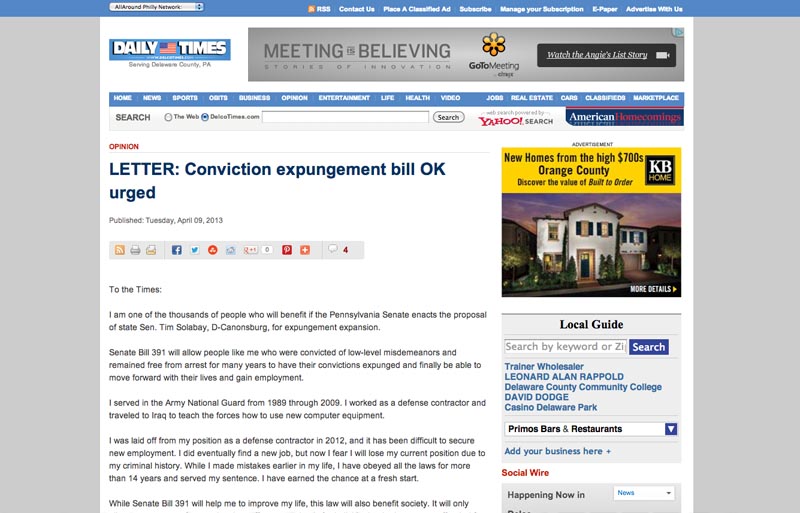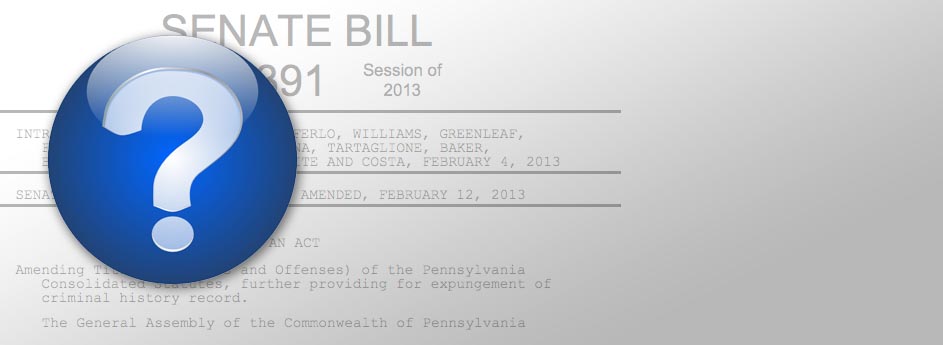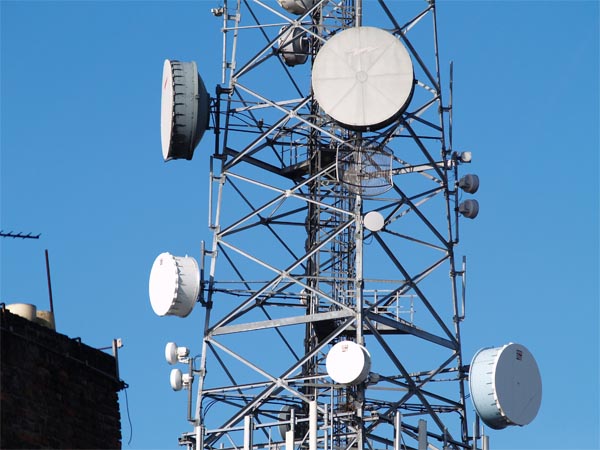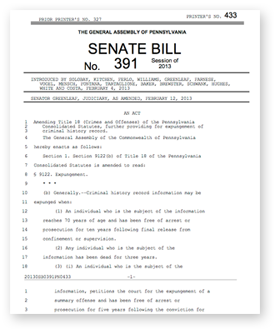I’ve just subscribed to your newsletter. This will help our family very much… one thing I would suggest is that you guys put live updates on the news section so we know the process of 391. thank you.
Supporting SB391 to reform PA Expungement Law
Author: H&A Webteam (page 6 of 6)
http://www.delcotimes.com/articles/2013/04/09/opinion/doc5164da52f26f2822976549.txt
If you see other letters to the editor that mention SB 391, please let us know.
dont give up! this bill will help two members of my family – my cousin and myself. i had a charge for being associated with my then ex-boyfriend five years ago, and the charge they applied on me was just as serious as the one put on him. I dont see how that’s very fair, but it’s possible that I can start over in life JUST AS LONG AS THIS BILL IS PASSED! then in two or three years i can finally be confident in FINDING JOBS.
This is definitely a good idea and will help someone who made a foolish mistake as a young adult. They are charged, pay for their crime according to law, and often times change the direction of their lives but with the charge remaining on their record it is like they have to pay for the rest of their lives. That is just wrong. The Bill provides that they have to have a clean record for 8 to 10 years in order to get the expungement and if they can stay out of trouble for that length000-017
300-320
of time they deserve an expungement. I hope and pray that this Bill passes, I have someone in my life who would benefit from the passing of this Bill.
SB391 is significant to many Pennsylvanians who are eligible for expungement if Bill 391 is passed. But do you know for sure if you will be eligible if it does? Visit our frequently asked questions section and learn a few details about Bill 391.
We have sent more than 7,500 emails to people in Pennsylvania who have requested to be updated about changes in PA expungement law. We are expressing our gratitude to Senator Timothy Solobay for continuing to fight for this important law and to encourage Senator Dominic Pileggi to allow a vote on the bill by the full Senate.
We are excited to announce that we will soon be running radio ads supporting SB 391. Stay tuned for more information.
Senate Bill 391 would allow those convicted of certain misdemeanors of the second and third degree to apply to have the record expunged if they keep a clean record for seven years and 10 years, respectively.
State Sen. Tim Solobay has reintroduced legislation intended to curb prison costs and lower recidivism rates by clearing minor criminal records so that former offenders can find employment.
Senate Bill 391 would allow individuals who were convicted of certain misdemeanors of the second and third degree to apply to have the record expunged if they keep a clean record for seven years and 10 years, respectively.
“Society isn’t helped by being stubbornly strict with lawbreakers who have paid their debt,” Solobay said. “If we want them to become productive members of society, we have to remove the stigma by clearing the record when appropriate. This will keep them out of prison and everybody wins.”
Pennsylvania’s prison population has jumped from just more than 8,000 to more than 51,000 in the past 20 years, and costs have risen 37 percent in the past 10 years. Continue reading
State Senator Tim Solobay recently reintroduced a bill, Senate Bill 391, to allow for more leniency in expungement law. The current law states that crimes other than summary offenses cannot be expunged until after the offender turned 70 years old or has been deceased for more than three years. With the new bill, which was officially amended on February 12, 2012 with a 14-0 vote, individuals who have misdemeanors of the 2nd and 3rd degree can apply to have the records expunged if they have kept a clean record for 7-10 years respectively.
Democratic Senator Tim Solobay is adamant about getting this bill to pass after a similar senate bill, Senate Bill 1220, failed to make it to a floor vote. Solobay has been cited stating that the major intent of this bill is to offer more opportunities for former offenders to find jobs, and consequently lower recidivism rates. If this Bill passes, those who are eligible under the new expungement law can potentially change their lives and remove the stigma that follows a criminal judgment.
This bill however, does not apply to all misdemeanor offenses. Specifically, it does not apply to offenses punishable by more than one year in prison or pertaining to certain forms of assault, sex offense, cruelty to animals, firearms offenses, and certain other crimes. The bill also notes that expungement is not automatic and will still be granted solely at the discretion of the court.
© 2026 Support Pennsylvania Expungement
Theme by Anders Noren — Up ↑









